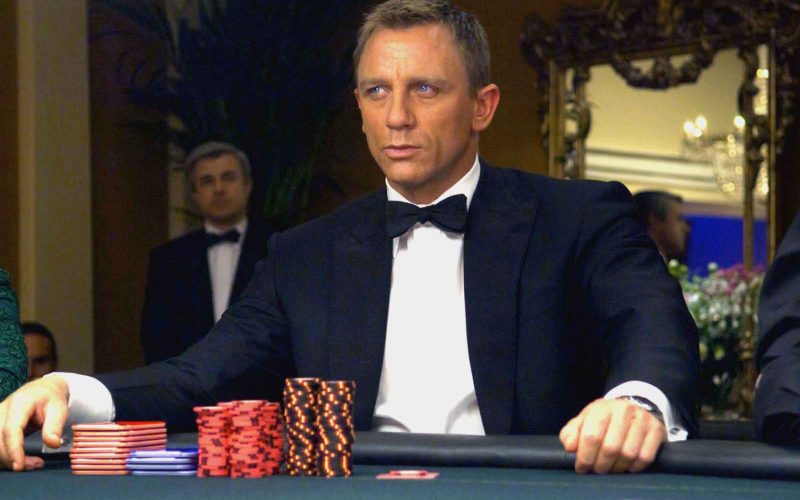Casino Royale (2006) – Successfully Rebooting a 44 Year Old Franchise.
The character of James Bond has somehow managed to stand the test of time despite, what some may consider, a rather generic formula and a central character that cannot grow for the sake of the franchise’s longevity. Daniel Craig became the sixth actor to officially take on the iconic role, a casting that, as has become the standard response to high-profile replacements, was met with much resistance from both the fanbase and critics at the time. As has been the case more often than not, the detractors were silenced with Craig’s emphatic performance in 2006’s Casino Royale.
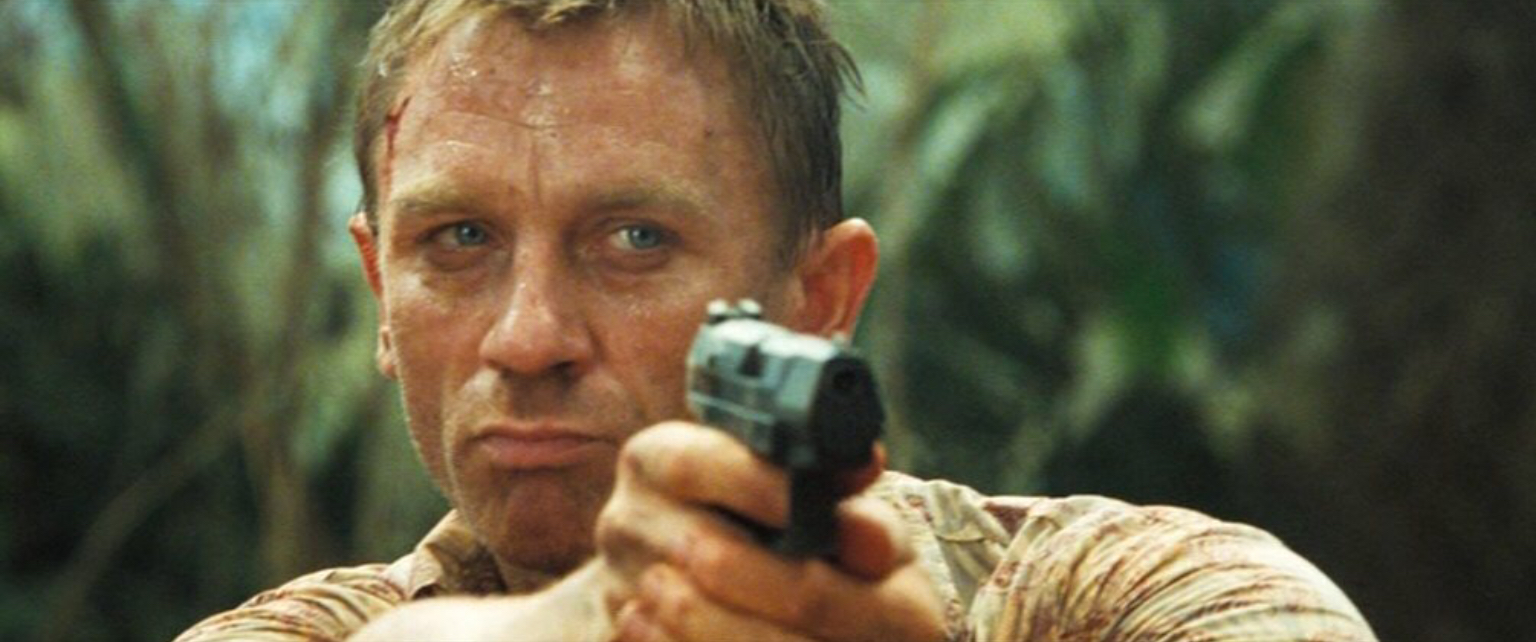
Casino Royale adapts the first of Ian Fleming’s 007 stories, and as such acts as a soft reboot for the character. It takes Bond back to the beginning, or close enough to the beginning. We open in black and white on his first and second kills, and then skip forward soon after the opening credits sequence to a Bond who has now been promoted to 00 status. Director Martin Campbell, in his second film in the franchise after 1995’s Goldeneye, finds ways to freshen franchise staples so that the film never falls into camp or fan servie, as when he turns and shoots to launch the aforementioned opening credits, or when he finally says one of the character’s famous lines only at the very end of the film. This final choice puts a stamp on the arc that the character progresses through over the course of the film. That said, there are valuable ties to the established series. Judi Dench reprises her role of M from the Pierce Brosnan Bond films and series regulars such as Bond’s American CIA counterpart Felix Leiter (Jeffrey Wright), play a key role in the story.
We meet Bond at a time in his life where he’s still extremely intelligent, resourceful, and cunning, and with a willingness to kill, but also when he has a conscience and is more susceptible to the influence of others. Here he develops an awareness of the fact that his soul cannot endure a life of spying on and slaying targets without becoming damaged, or at least tempered to some degree.
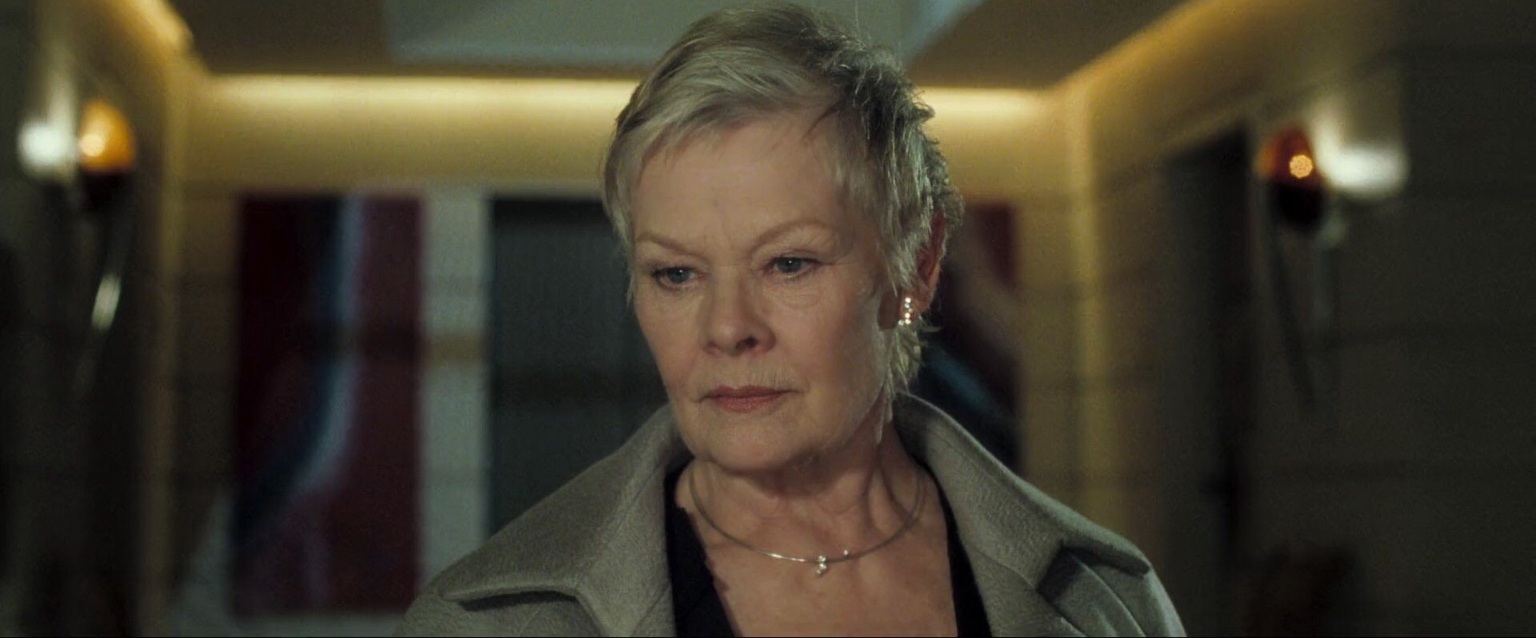
The character who shows him that he could want something more is Vesper Lynd, his financier and quasi-turned-literal love interest who finds a rare way into Bond’s heart. There are various moments in which Craig displays Bond’s apparent youthfulness, mostly highlighted through his brash behaviour. It’s also evident in the impression that Vesper so quickly leaves on him. Immediately Vesper doesn’t feel like another one of those franchise tropes that Casino Royale mostly avoids. In their first conversation she plays at his level and one-ups him in a way that Bond is clearly not used to. Played by Eva green, Vesper almost steals the film out from under its main character.
There isn’t a whole lot of subtlety in it, but clothing choice here is tremendously effective. The characters’ attire is lavish, stylish, impeccable. Vesper often displays her superiority within her and Bond’s unusual relationship with such acts a getting Bond a new dinner jacket because the one he’d bought wasn’t up to standard. That’s a power play, but we can surmise a lot about the character by what she wears herself. During the compelling poker sequence at the casino, she’s wearing black. It’s a deliberate choice, and yet one that might easily go over our heads. She’s meant to be mysterious and maybe even questionable, yet we trust her almost instantly because she’s able to match Bond’s cunning and witty demeanour. In the third act she wears a radiant red dress which hints at the love and lust that drives the finale but also the danger that she so swiftly and suddenly represents.
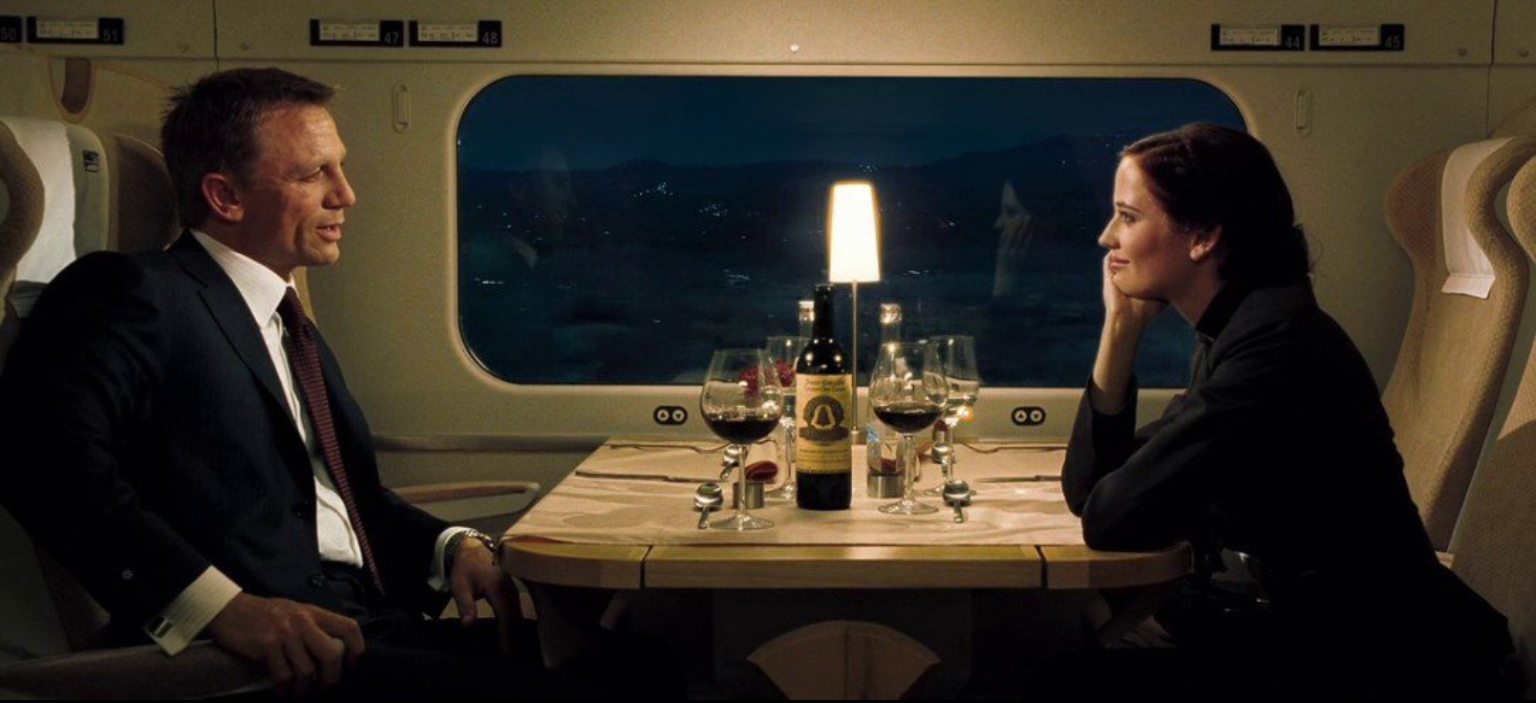
Mads Mikkelsen plays the villainous Le Chiffre, whose scarred eye with it’s leaking blood leaves a strong visual impression. Mikkelsen does not speak many lines in comparison to the amount of screen time he has, and yet the character is appropriately menacing. During the aforementioned poker sequence, the back and forth between Bond and Le Chiffre through mostly facial expressions alone is fascinating. With or without a comprehensive knowledge of poker, the often dialogue-lite scenes invite the viewer to try and read the characters at the same time as they’re trying to read each other. The breaks interspersed throughout the hours-long game offer the film a chance to speed up its pace so as not to allow it to ever feel too monotonous. As if it could ever have felt that way, and certainly the film could have spent its entire two-and-a-half hour runtime at that table, but this is, to some extent, an action film after all. It’s surprising when the film leaves the casino behind with still an hour remaining, and it’s even more surprising when its villain is killed off with an entire act to go. Le Chiffre goes out on a high as far as villains go because the bullet through his head comes during a brutal torture sequence which undoubtedly has its male viewers feeling more than a little knotted whether it be the first or hundredth time they’ve seen it.
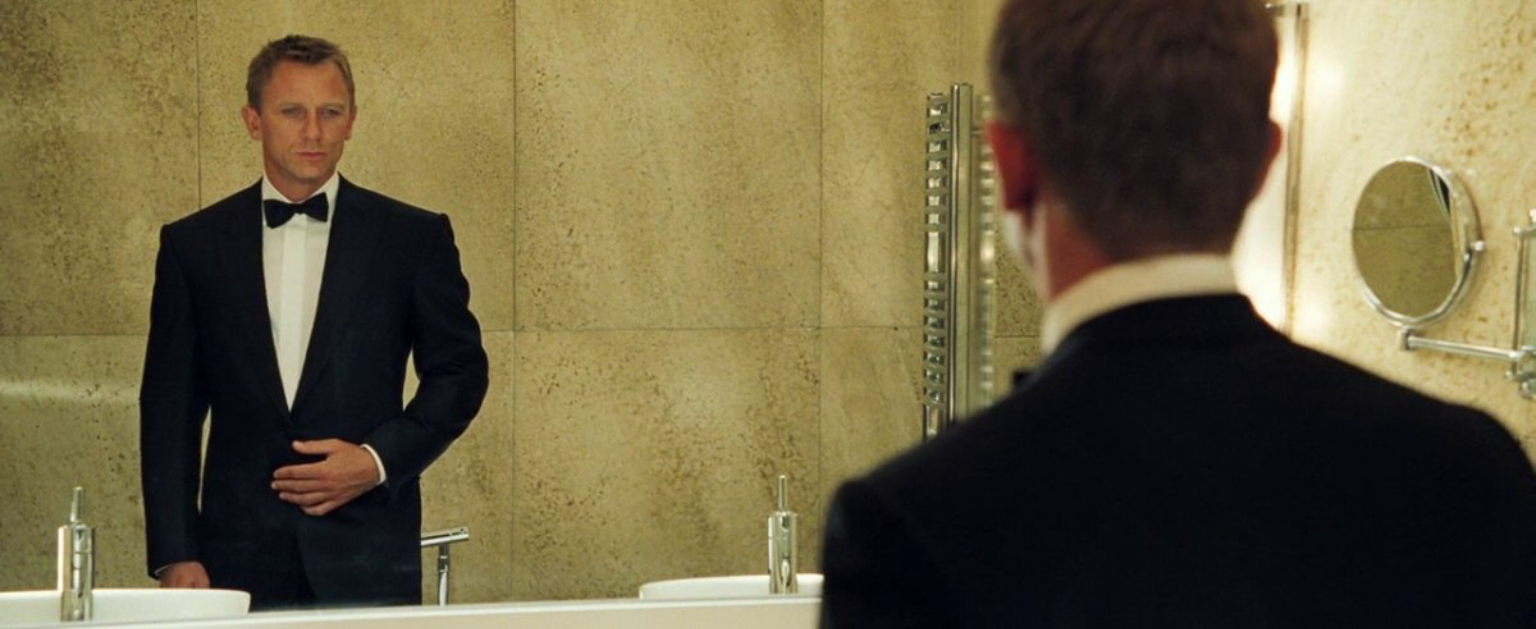
From a storytelling point of view, killing the antagonist so soon seems like narrative suicide. And yet Bond’s recovery and subsequent abandonment of his duties to travel the world with Vesper is so refreshingly mundane and earned that it works. At the same time it’s so clear that the rug is going to be pulled out from everyone eventually. The film manages to remain tight despite how far it strays from its central conflict by pulling elements back in that were introduced way back at the beginning. It’s easy to think that the scope of Casino Royale is rather small in comparison to other films in the franchise, yet it takes the opportunity toward the end to remind us that Bond is up against something far bigger than one bomb maker or a weapons financier.
Casino Royale is dark and gritty, even amidst all the fun to be had here. It represents Bond truly entering a post 9/11 world, but also a world in which the franchise needs to try and match the demands set by the modern superhero blockbuster while still maintaining its identity. This is why stripping the character back to his very basics and giving him something tangible to lose is so essential. It’s no longer enough to try and draw a crowd by professing that the same old James Bond is back in business. Daniel Craig was the right choice for the right time. He’s gruff, often arrogant, mischievous, but also charming, and he remains a mystery even if we get minor glimpses at what drives him. Tropes that need to be sidelined are done away with frequently. Vesper for example, is never the damsel in distress in a traditional sense and in fact it may even be Bond that needs saving more often than anybody else.
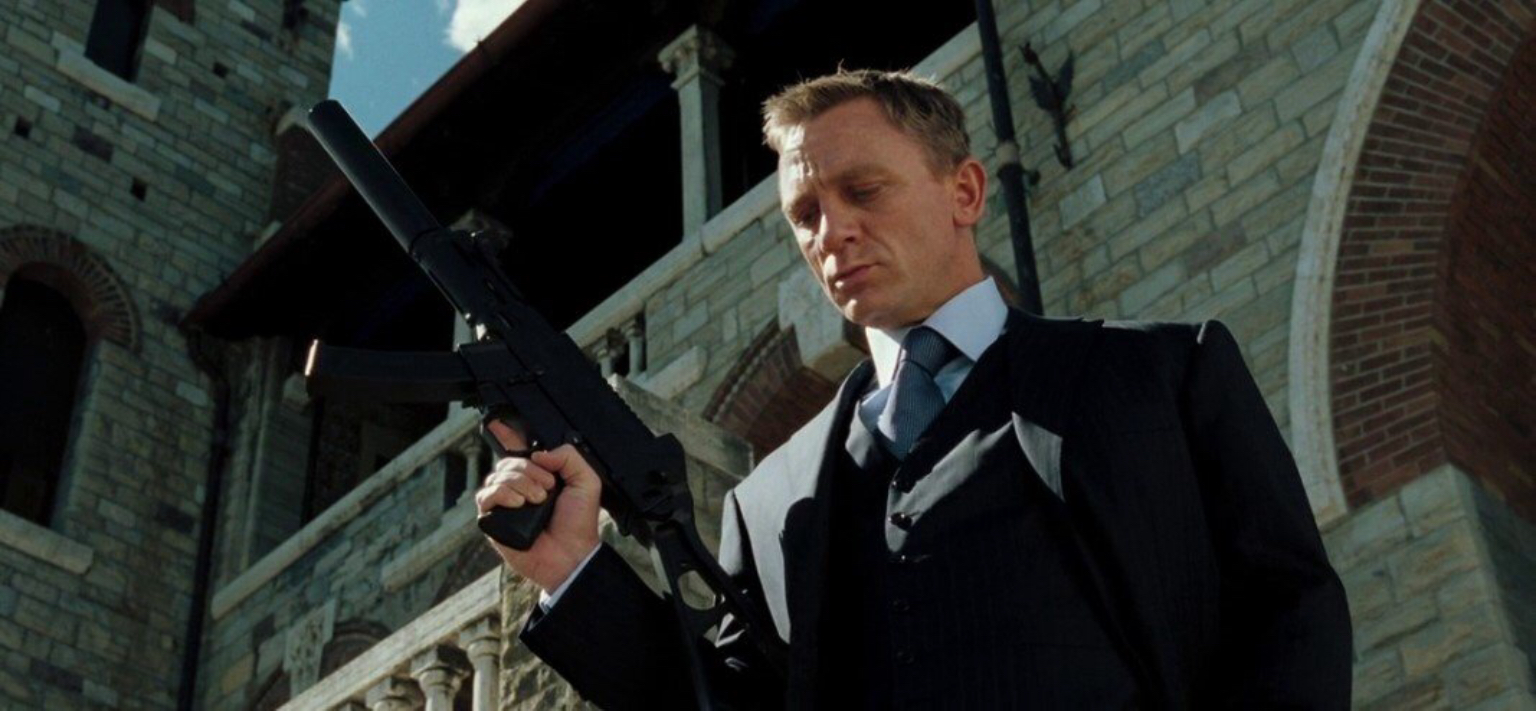
While the opening act is thrilling, Casino Royale takes its time getting to the point. Its main event, the high-stakes poker game, is the film’s highlight. Campbell and company care enough about the characters that as they progress, we care more. The film is a tragedy. By its conclusion, James Bond becomes the Bond that society most recognises. And in showing us how he got there, we relate to him a whole lot more. He’s been humanised so that his lifestyle makes sense to some degree. Seeing his cold exterior melted away before freezing over again gives us hope that in future installments, someone or something might be able to pierce through again. But we can tell through Craig’s performance alone that Bond will not be lowering his guard quite so easily next time. Next time this steely, toughened, tempered Bond will be going for all-out, cold-blooded revenge.
Film ’89 Verdict – 9/10

